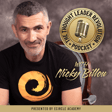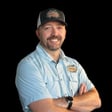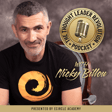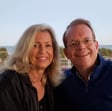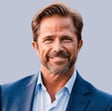
EP624: Pete Roberts - Built By Freedom, The Origin USA Story
“Blue jeans and boots built America, and if we’re going to build it again, this renaissance, it has to start with jeans and boots.”
Today we welcome Pete Roberts, a pioneer in American manufacturing and the visionary behind Origin USA and Jocko Fuel. Known for reviving manufacturing on American soil, Pete shares his personal journey from small-town Maine to building a brand synonymous with grit, resilience, and purpose. Pete is driving an American-Made Renaissance. He shares his mission to bring manufacturing back to the U.S., emphasizing the importance of American-made products and the generational craftsmanship that built America’s industrial heartland. From rescuing a denim factory in North Carolina to rebuilding the supply chain from “dirt to shirt,” Pete’s goal is simple yet profound: make quality products, built entirely in the USA.
After a defining moment in Abu Dhabi, Pete doubled down on creating Origin, a company committed to manufacturing high-quality jiu-jitsu gis, jeans, and boots on U.S. soil. The journey wasn’t easy, but Pete’s “crime of passion” became the foundation of Origin USA, where every product is crafted to last a lifetime.
“Built by Freedom” is more than just a tagline for Pete Roberts—it’s a mission. Pete is reshaping American manufacturing, one pair of jeans at a time, while challenging us all to rethink how and where we make our purchases. This episode is for those who believe in supporting products with purpose, and for anyone who wants to understand what it takes to build a legacy from the ground up.
Pete’s Expert Action Steps for Purpose-Driven Success:
1. Long-Term Vision
“Anything great in life takes 10 years.” Committing to a decade to build something meaningful is essential for creating lasting impact.
2. Purpose Over Ideas
Purpose is the gravitational force that drives ideas. When grounded in purpose, your work will outlast fleeting trends and establish a legacy rooted in genuine impact.
3. Mind Share and Soul Share Over Market Share
Forget chasing market share. Focus on building genuine relationships with customers who believe in your mission. Capturing mind and soul share leads to loyal customers who value more than just the product.
Key Product Highlights:
• Origin’s Jeans and Boots: Built by freedom, Origin’s jeans and boots are not just products—they’re symbols of American resilience. These handcrafted items represent Pete’s commitment to making apparel that not only lasts but tells a story of quality and pride.
• Jocko Fuel: Created with his partner Jocko Willink, Jocko Fuel offers premium nutritional products available across major U.S. retailers, supporting customers who value fitness, discipline, and purpose.
Where to Learn More and Support:
• Origin USA: Discover products built by freedom, including jeans, boots, and jiu-jitsu gis.
• Jocko Fuel: Fuel your body with purpose-driven nutritional products.
Listeners, this is your chance to support the resurgence of American manufacturing. Join the movement, spread the word, and let’s build a future that’s made in America.
Visit eCircleAcademy.com and book a success call with Nicky to take your practice to the next level.



